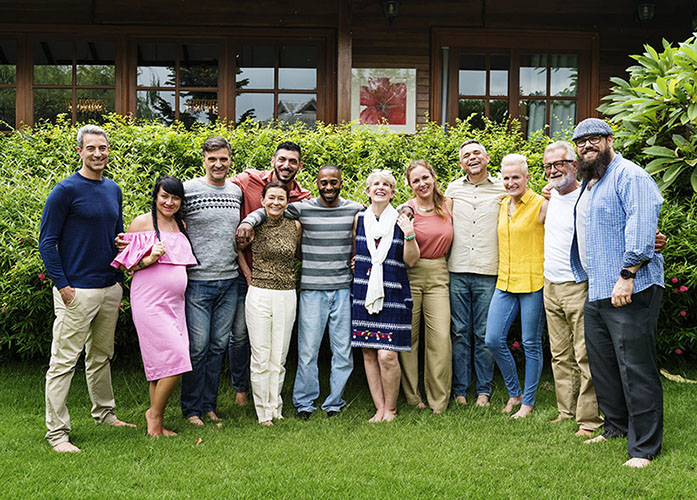Are you a sophisticated woman over 35 looking for love? Navigating the modern dating scene can be daunting, but fear not! We’ve compiled 25 essential dating tips to help you find the relationship you deserve. From online dating to self-confidence, let’s explore the key ingredients for success in the quest for love.
1. Embrace Your Authentic Self
Before diving into the dating world, take a moment to reflect on who you truly are. Embrace your uniqueness and let your genuine self shine. Remember, the right person will love you for who you are, so don’t be afraid to be true to yourself.
2. Know Your Worth
Confidence is attractive. Understand your worth and never settle for less than you deserve. You are a strong and independent woman, and that should be reflected in your relationships.
3. Be Open to New Experiences
Expand your horizons and be open to trying new things. Step outside of your comfort zone, take up a new hobby, or join a club to meet like-minded individuals. The more you expose yourself to new experiences, the greater your chances of meeting someone special.
4. Let Go of Past Baggage
Leave the past where it belongs. Holding onto past experiences or grudges can hinder your ability to form a meaningful connection. Allow yourself to heal and move forward before starting a new relationship.
5. Use Technology to Your Advantage
Online dating can be a great tool for meeting potential partners, especially for busy professionals. Create a compelling profile that showcases your personality and interests. Be selective, but also open-minded. Remember, the perfect match might be just a swipe away.
6. Invest Time in Self-Care
Prioritize self-care and self-love. Take care of your physical and mental well-being, as this will radiate confidence and attract others. Engage in activities that bring you joy and make you feel fulfilled.
7. Be Clear About Your Expectations
When entering the dating world, know what you are looking for in a partner. Make a list of your non-negotiables and stick to them. Being clear about your expectations will save you time and heartache in the long run.
8. Communication is Key
Effective communication is essential in all relationships. Be open, honest, and compassionate when expressing your thoughts and feelings. Similarly, actively listen to your partner to foster understanding and connection.
9. Take It Slow
Rome wasn’t built in a day, and neither are lasting relationships. Allow love to unfold naturally and don’t rush into commitments. Take the time to get to know your potential partner and build a solid foundation.
10. Prioritize Compatibility
While chemistry is important, compatibility is the solid ground upon which a lasting relationship is built. Share core values, goals, and interests with your partner. This alignment will ensure a stronger connection for years to come.
11. Embrace Your Independence
A sophisticated woman values her independence, even while in a relationship. Allow your partner to have their own interests and support their personal growth. Balance is key.
12. Stay True to Your Boundaries
Know and communicate your boundaries clearly. Respect yourself and expect the same from your partner. Establishing healthy boundaries will create a safe and harmonious relationship.
13. Don’t Settle for Less
As a sophisticated woman, you deserve the best. Don’t settle for a relationship that doesn’t meet your needs or fulfill your desires. It’s better to be alone than to be in a relationship that compromises your happiness.
14. Be Flexible in Your Requirements
While knowing your non-negotiables is important, be open to compromise on less critical aspects. Remember, nobody is perfect, and embracing imperfections can lead to beautiful connections.
15. Emphasize Emotional Connection
Physical attraction is important, but building a strong emotional connection is paramount. Look for a partner who values and prioritizes emotional intimacy as much as you do.
16. Learn From Past Relationships
Each past relationship offers valuable lessons. Take time to reflect on what worked and what didn’t. Use this knowledge to make better choices in future relationships.
17. Don’t Be Discouraged by Setbacks
Dating can be challenging, and setbacks are inevitable. Don’t let disappointment or heartache discourage you. Remember, every experience brings you one step closer to finding the right person.
18. Surround Yourself With Positive Support
Seek the company of friends and family who uplift and support you. Their positivity will help you maintain a healthy mindset and mindset plays a crucial role in finding love.
19. Take Breaks When Needed
Dating can be exhausting, both physically and emotionally. It’s okay to take breaks and focus on self-care when needed. Listen to your intuition and give yourself the necessary time and space to recharge.
20. Foster a Healthy Work-Life Balance
Achieving a healthy work-life balance is vital for overall happiness and relationship success. Prioritize your career ambitions, but remember the importance of quality time in nurturing a connection.
21. Be Open to Different Types of Relationships
Not all relationships follow a conventional path. Be open to exploring different types of relationships, whether that’s a long-term commitment, companionship, or casual dating. There is no one-size-fits-all solution.
22. Don’t Be Afraid to Seek Professional Help
If past relationships or emotional baggage are holding you back, seeking therapy or relationship counseling can be immensely helpful. A professional’s guidance can provide valuable insights and tools for personal growth.
23. Celebrate Your Age and Experience
Confidence comes with age, and maturity shines through experience. Embrace your age and the wisdom it brings. Celebrate the incredible woman you have become.
24. Stay True to What You Want
Don’t let societal pressures or external expectations dictate your desires. Stay true to what you want in your love life, even if it deviates from the norm.
25. Believe in Love
Finally, never lose faith in love. Believe that the right person is out there, searching for you just as eagerly. Love knows no age limits and can be found at any stage of life.
So, fellow sophisticated women over 35, these 25 dating tips will guide you on your journey to finding love and developing a fulfilling relationship. Remember, you are worthy of love and deserve a partner who appreciates you for the amazing person you are. Happy dating!











